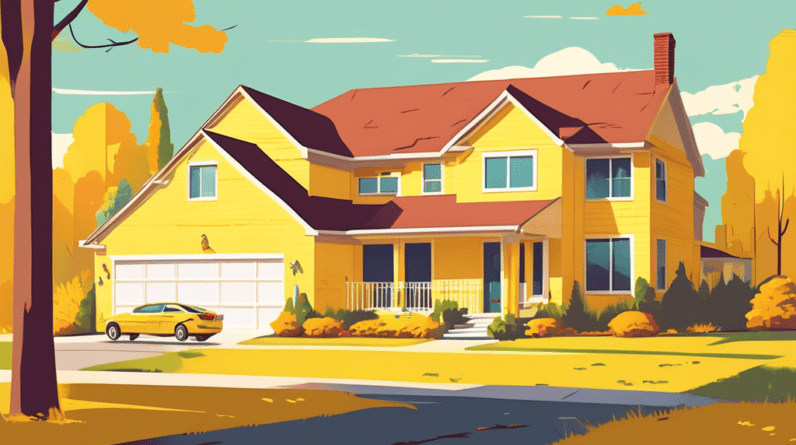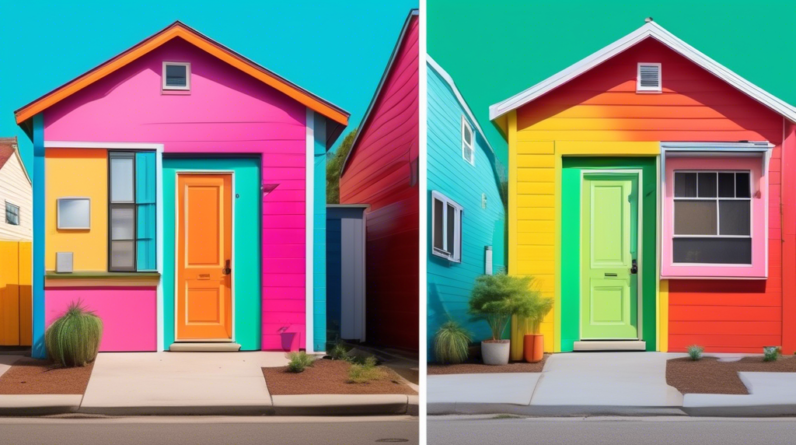
In a bold move to address the burgeoning affordable housing crisis, a Kissimmee City Commissioner has put forth a controversial proposal: converting existing garages into habitable dwelling units. The proposal, while still in its nascent stages, has sparked heated debate, raising questions about feasibility, community impact, and the very definition of affordable.
A City Grappling with Affordability
Kissimmee, a city nestled on the outskirts of Orlando, Florida, is no stranger to the challenges of affordable housing. Like many sun-drenched cities across the nation, Kissimmee has experienced a surge in population growth and tourism, driving up housing costs and pushing homeownership out of reach for many working-class families.
The median home price in Kissimmee has skyrocketed in recent years, outpacing wage growth and leaving many residents struggling to keep up with rent and mortgage payments. The situation has reached a tipping point, prompting city officials to explore unconventional solutions.
Garage Conversions: A Controversial Solution
Commissioner [Commissioner’s Name], the driving force behind the garage conversion proposal, argues that it offers a pragmatic approach to increasing the city’s affordable housing stock without the need for large-scale construction projects. The proposal hinges on the idea of utilizing existing infrastructure—namely, garages—and converting them into livable spaces.
Under the proposed plan, homeowners would have the option to convert their garages into independent dwelling units, complete with kitchens, bathrooms, and separate entrances. These units could then be rented out at below-market rates, providing an affordable housing option for individuals and families struggling to find a place to live in the increasingly expensive city.
Potential Benefits and Drawbacks
Proponents of the plan tout its potential benefits, highlighting its cost-effectiveness and ability to create new housing units without requiring significant land development. They argue that garage conversions could offer a lifeline to struggling homeowners, allowing them to generate rental income and offset their own housing costs.
However, the proposal has been met with skepticism and outright opposition from some quarters. Critics raise concerns about the impact on neighborhood aesthetics, parking availability, and potential strain on existing infrastructure. Some residents worry that an influx of garage conversions could lead to overcrowding, increased traffic, and a decline in property values.
Others question the long-term viability of garage conversions as a solution to the affordable housing crisis. They argue that the number of units created through conversions would be negligible compared to the scale of the problem. They also raise concerns about the quality and safety of converted garages, particularly in a region prone to hurricanes and flooding.
Addressing Community Concerns
In response to the wave of concerns, Commissioner [Commissioner’s Name] has emphasized the importance of community engagement and input. The Commissioner has pledged to hold public forums and workshops to gather feedback from residents, address their questions, and potentially refine the proposal based on community input.
City officials have also indicated that any garage conversion program would be subject to stringent regulations and oversight. These regulations could include requirements for permits, inspections, minimum size standards, and adherence to building codes to ensure the safety and habitability of converted units.
The Future of the Proposal
The fate of the garage conversion proposal remains uncertain. The Kissimmee City Commission is expected to hold further discussions and public hearings on the matter in the coming months. A final decision on whether to move forward with the proposal, and if so, under what specific guidelines, is anticipated later this year.
A Larger Conversation
Regardless of the outcome in Kissimmee, the garage conversion proposal shines a light on the pressing need for innovative and sometimes controversial solutions to the affordable housing crisis. As cities across the nation grapple with similar challenges, the debate over how to balance the need for affordable housing with the concerns of existing residents is likely to continue.
The Kissimmee case serves as a reminder that there are no easy answers when it comes to addressing complex societal issues like affordable housing. Finding solutions requires a willingness to engage in difficult conversations, explore unconventional approaches, and prioritize the needs of all members of the community.






